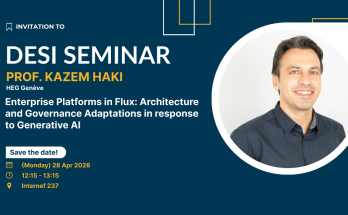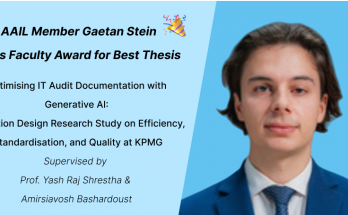
The article “ChatGPT one year later: have universities changed their role?” reflects on the transformative impact of the ChatGPT conversational agent on the academic landscape since its public release a year ago. To adapt to the change, UNIL has introduced new courses including a focus on prompt-engineering; that teaches students how to effectively utilize language-based artificial intelligence like ChatGPT. The article highlights the rapid developments in AI technology over the past year, including regulatory changes, software advancements, and integration into various platforms.
Key points from the article include:
- Adaptation in Education: Universities are adapting their teaching methods to incorporate AI technologies like ChatGPT, emphasizing critical thinking and adaptability among students.
- Academic Freedom: While some instructors integrate generative AI into their courses, academic freedom allows for diverse approaches across disciplines.
- Impact on Research: ChatGPT is also influencing research processes, contributing to tasks such as code evaluation and potentially sparking new lines of inquiry.
- Economic Dynamics: The financial aspects surrounding AI technologies are evolving, with implications for accessibility and collaboration within academia.
- Collaborative Initiatives: Universities are forming task forces and panels to navigate the complexities of AI development and its societal implications.
- Future Uncertainty: The article raises questions about the future of knowledge production as AI systems like ChatGPT increasingly generate content autonomously, prompting reflection on potential consequences and opportunities for academia.
Overall, the article suggests that universities are grappling with the multifaceted impacts of AI technologies like ChatGPT, prompting a reevaluation of traditional roles and practices within higher education. Continued adaptation and reflection within higher education institutions in needed.



